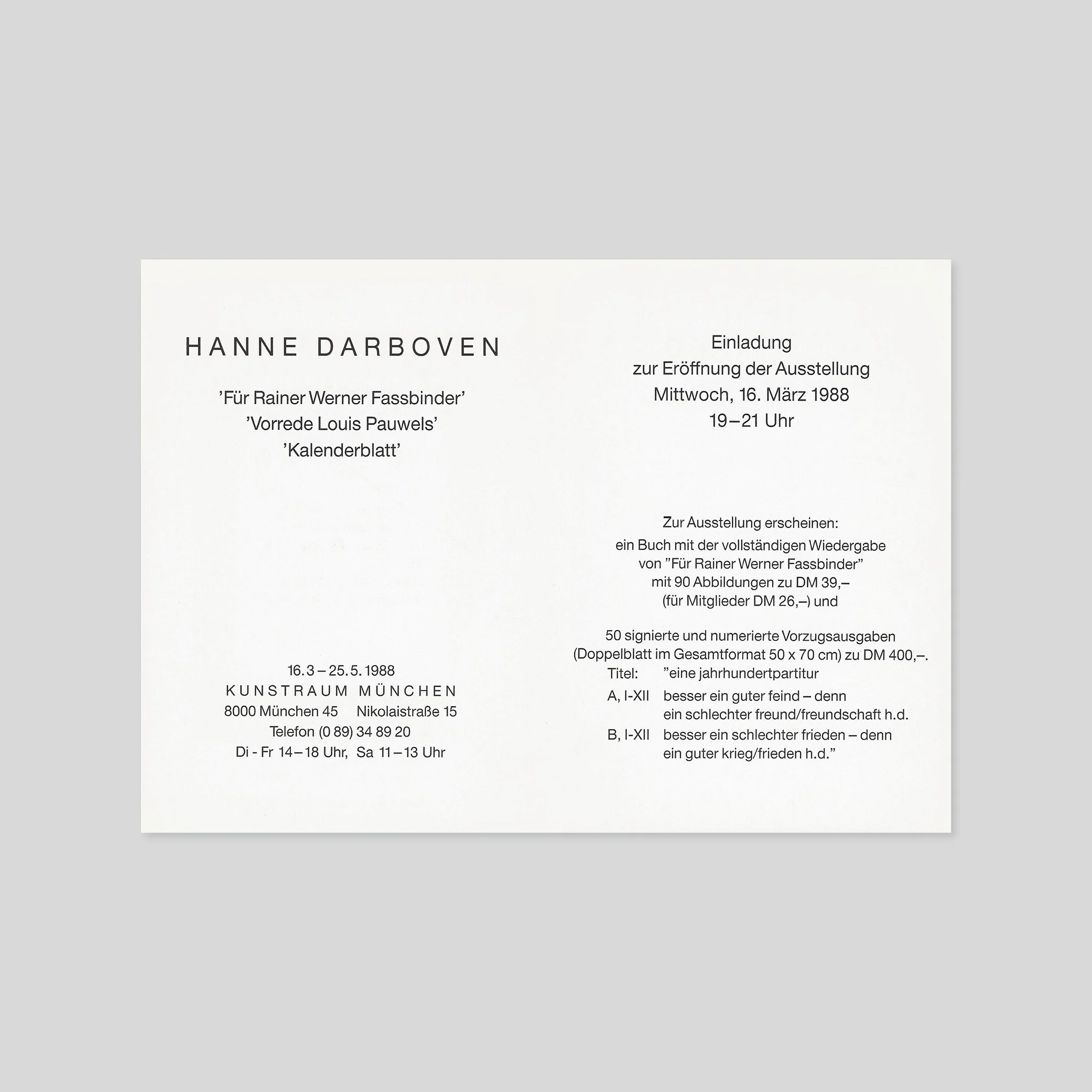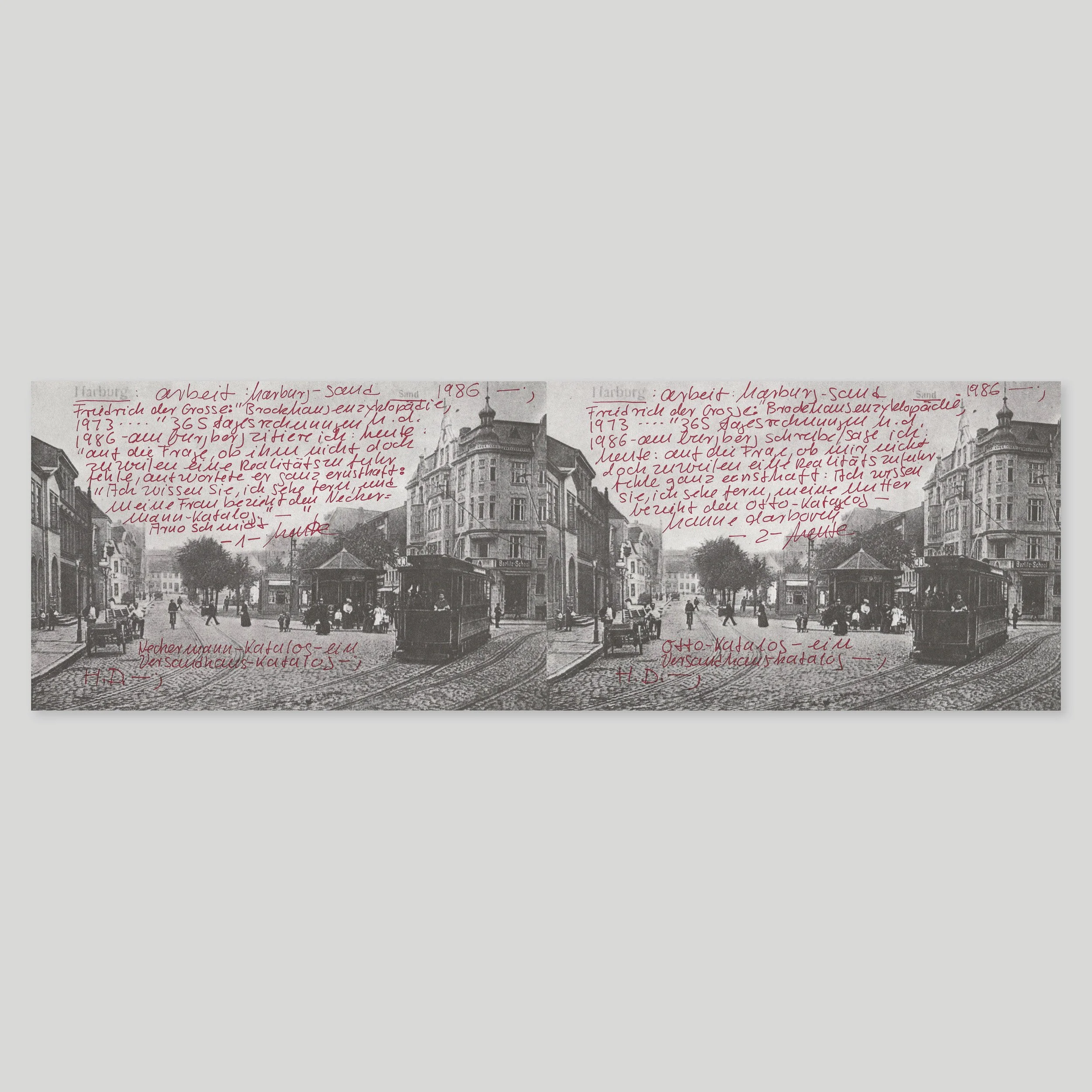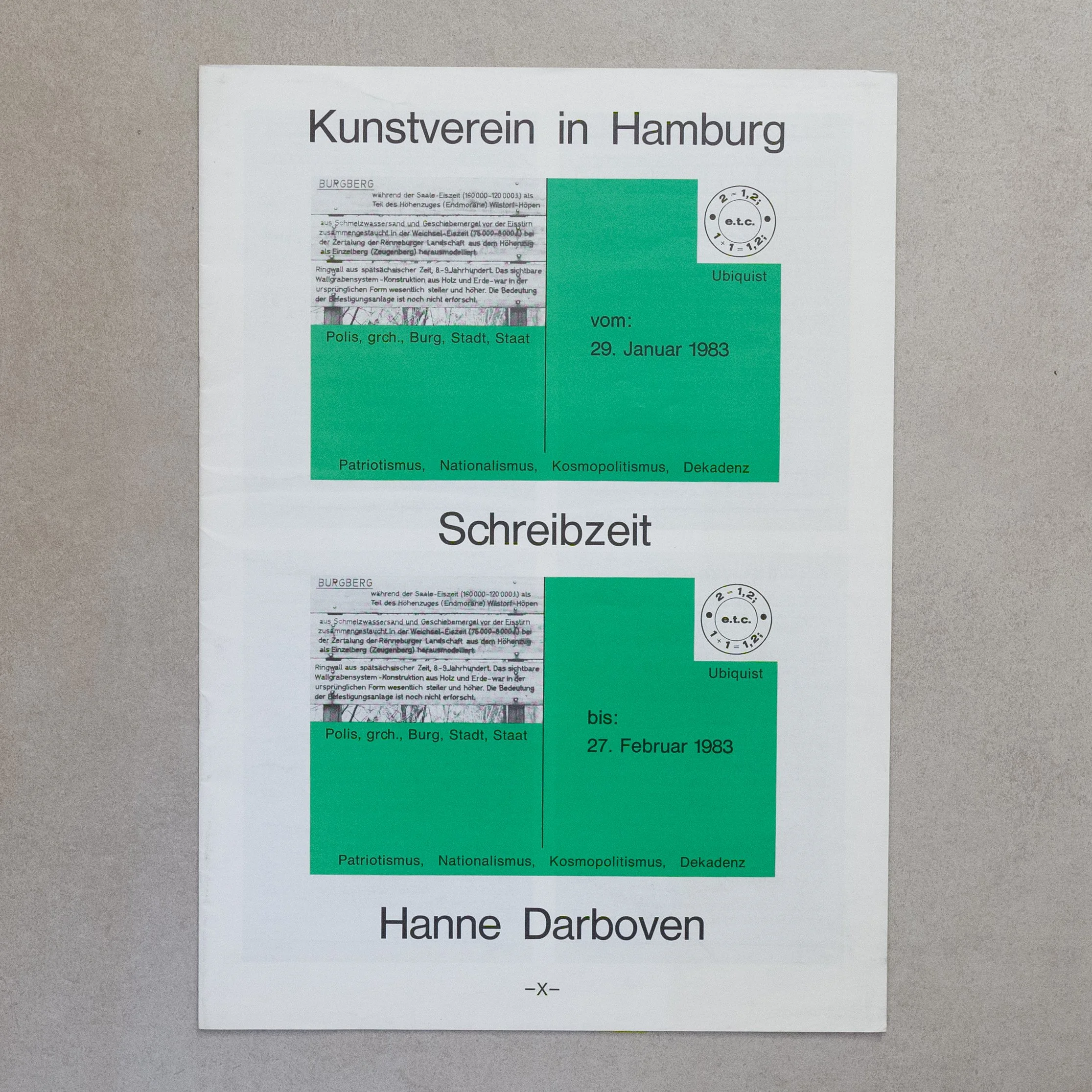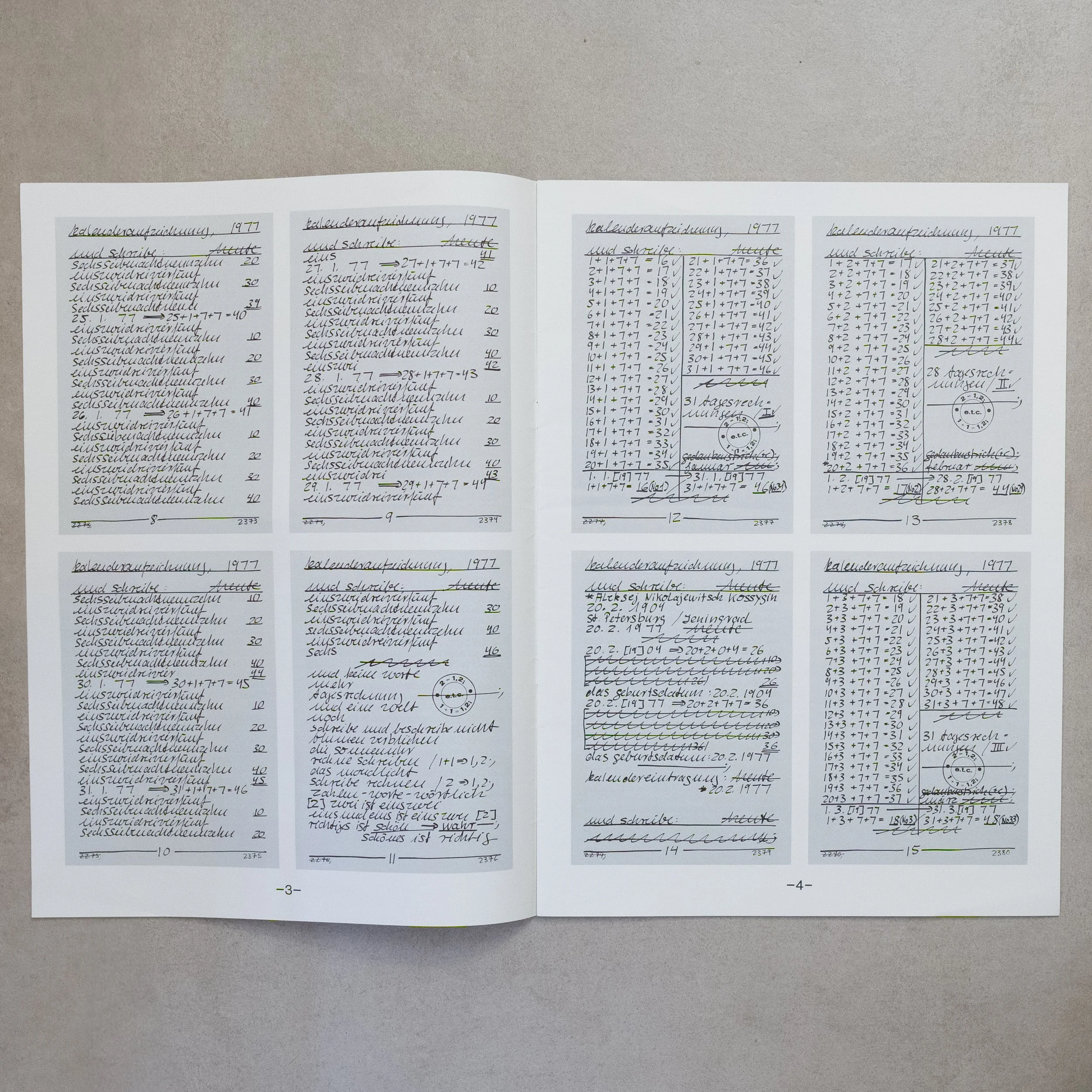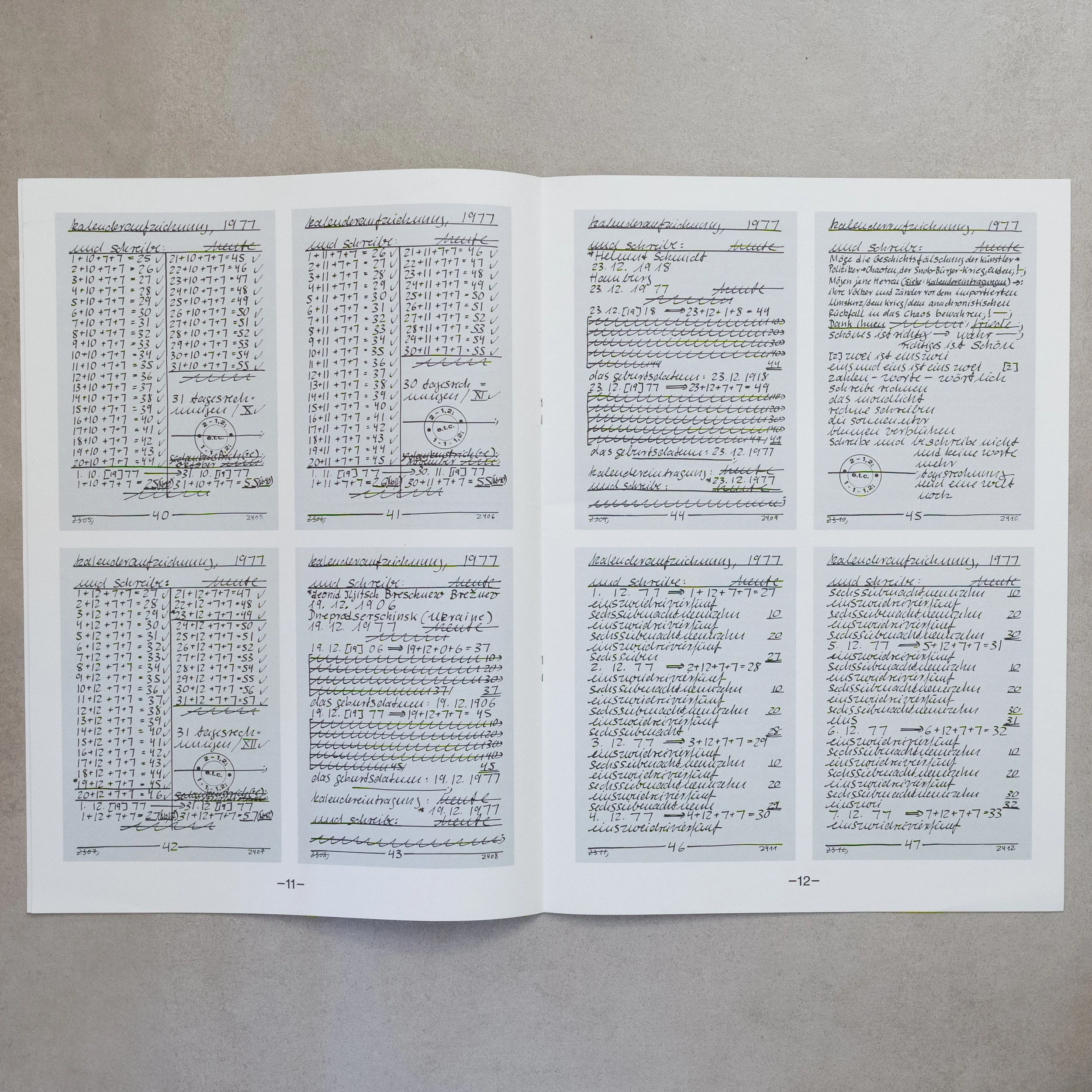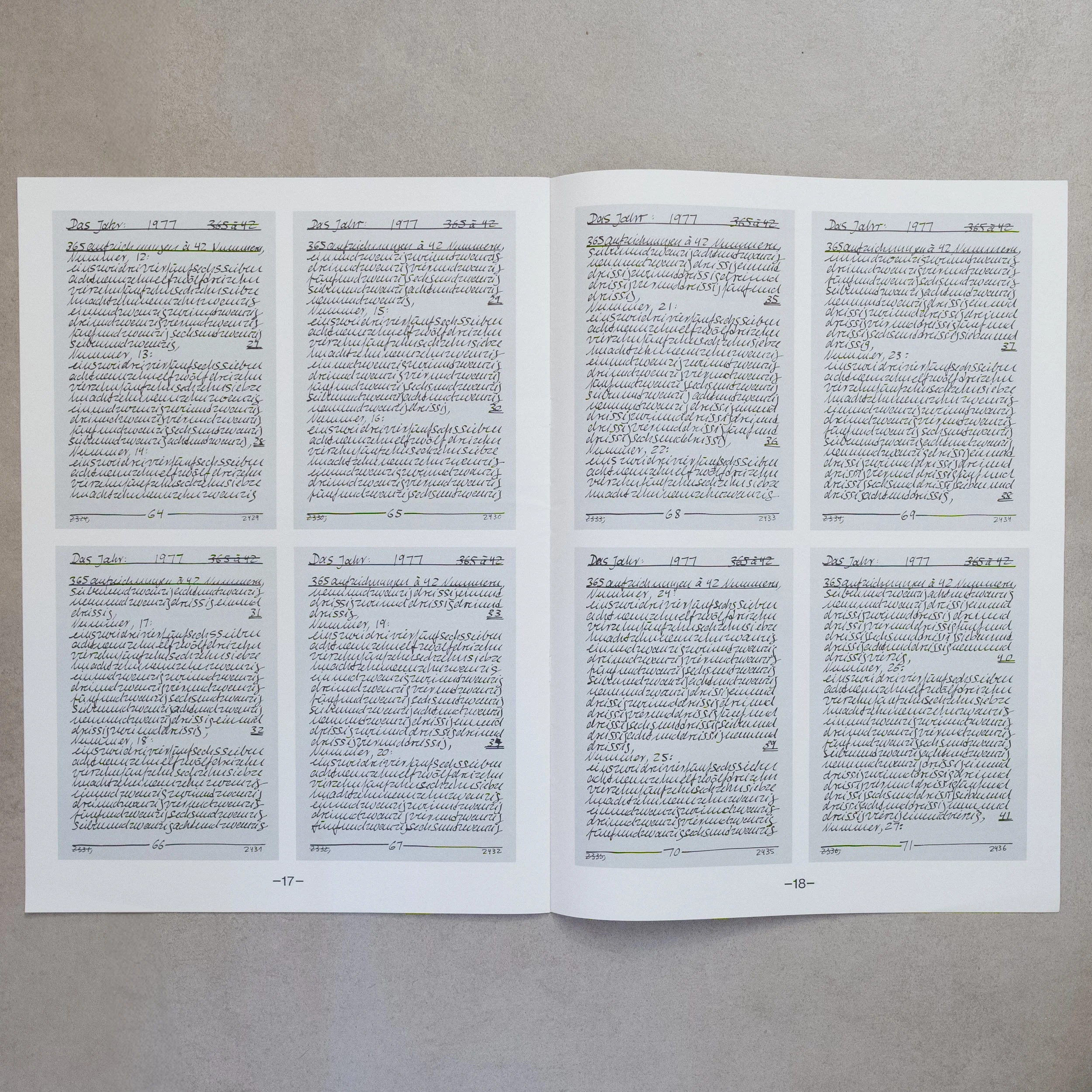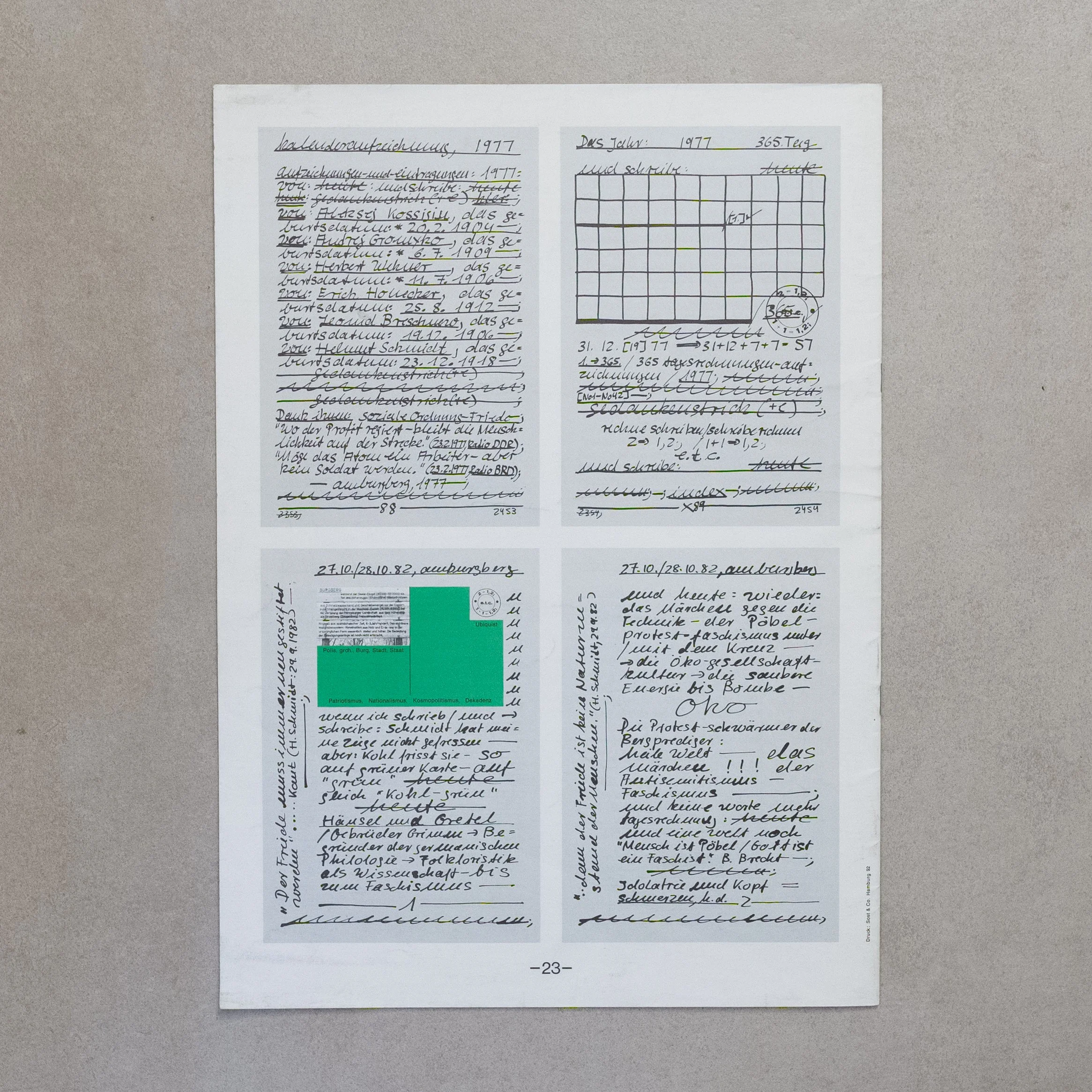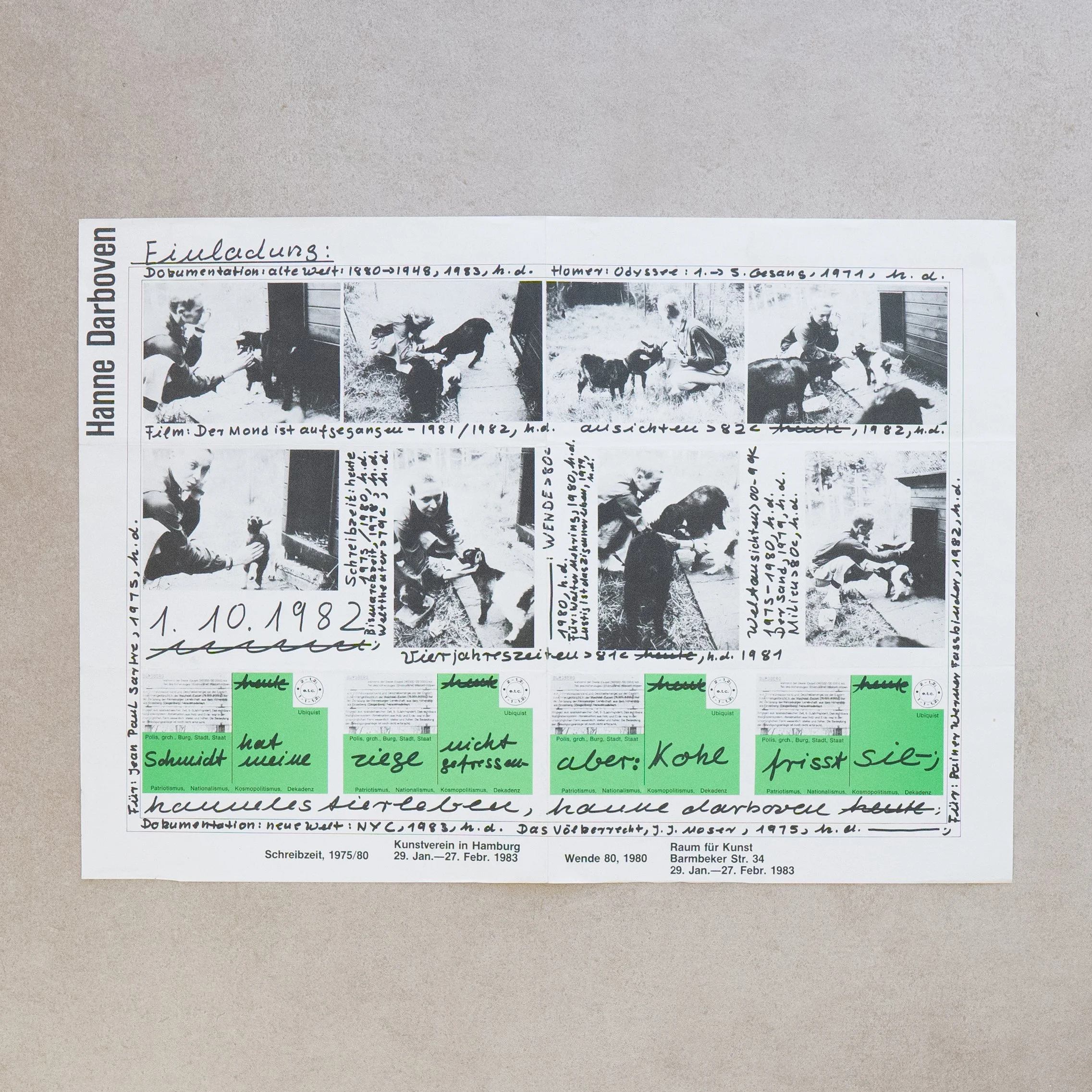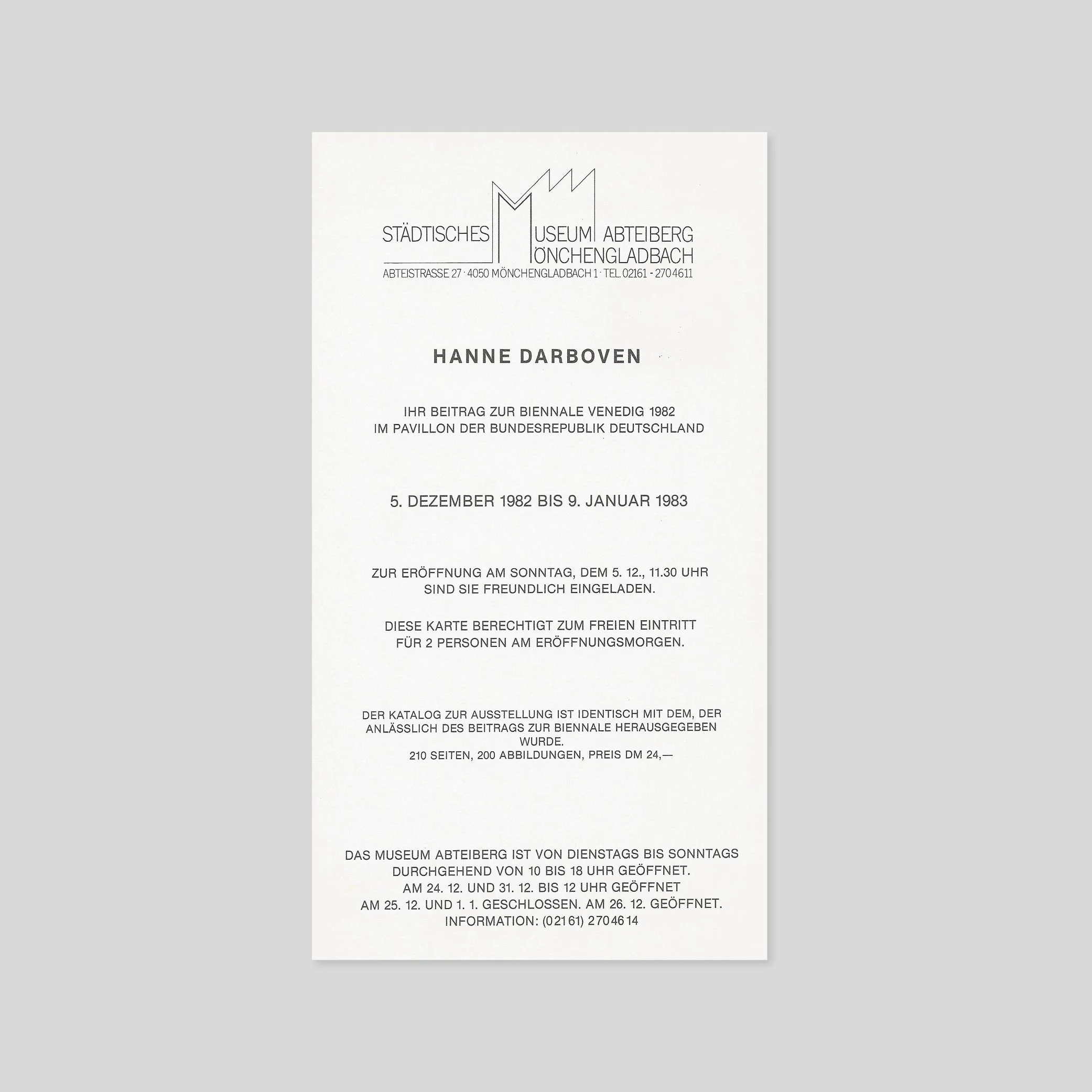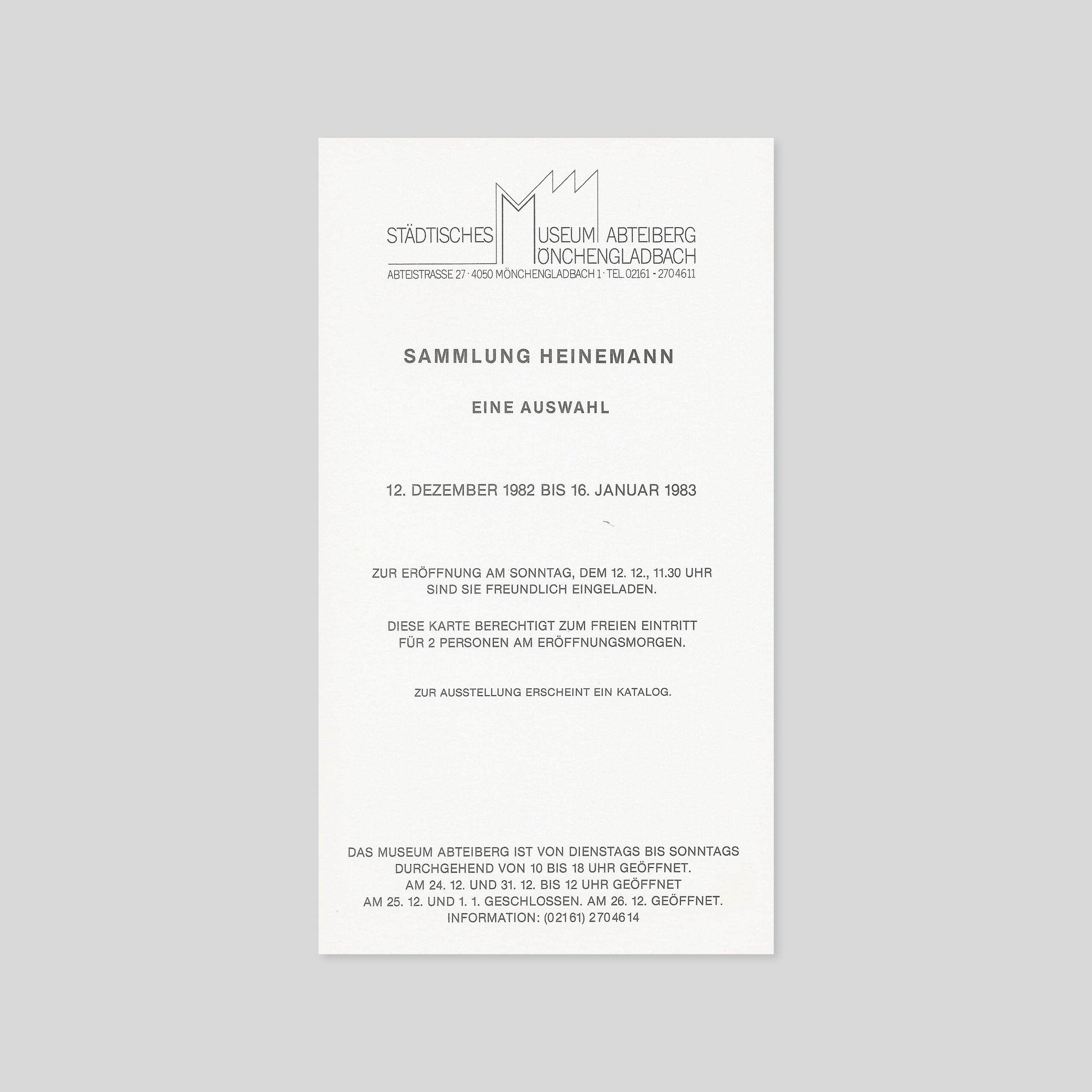“Weiner demonstrates his theory of allegory in a recent book, DUCKS ON A POND, based on six different, mutually related structures: three works (sculptures), a discourse on theater/film and the function of the actor, a country-and-western song, the repeated picture of a ship, photographs of film productions seen from the prospective of someone standing behind the scenes, and a collage of drawings of sums with cropped maps of certain island regions. These data set the stage geographically by listing possible locations as contexts for the works and for the narrative elements. One such element is the song. Like the drawings, it provides a specific atmosphere for one of the author’s para- digmatic statements. The sums link up the material components of the book, the author’s paradigmatic statements. The sums link up the ma- terial components of the book, the setting; taken in isolation, the sum is an ideal structure, based on the comparability of the elements to be added. The equal signs are not followed by a mathematical sum but by a location on the map, made up of added materials as well. The ship established the context of a voyage but it also a metaphor for the movement of reading through the book; it is the same, page after page, and defines neither of a departure nor a destination. The sculptures demonstrate the process of objectivation, which converts conventional me- taphorical turns of phrase (“HIGH OUT OF THE WATER or “WATER OVER THE SIDE”) into representations of materials situations. The same process is conveyed by the photographs, depicting people in the two-fold function of transition from private person to stage person, without allowing one function to negate the other. The selection of shots is arbitrary; they neither tell a story nor do they show specific people to way they are. Instead, they turn a particular situation to a readable one. The publication of the photographs in the context of the objectifies then and removes the depicted persons from their private context: “THE UTILIZATION OF GENERALIZED CHARACTERIZATIONS NEGATES THE NEED FOR EMPATHY IN ORDER TO MAKE THE MEANING KNOWN.” The message, the content, is no longer the expression of a generalized order, the assertion of a subjective insight or an esthetic judgement because it is linguistic and therefore accessible beyond the moment. It denotes the momentary confluence of the reality of specifically heterogeneous materials and their linguistic objectivation...” (Dieter Schwarz)







